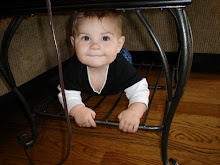The author is speaking to Brother Li in this section and he says, "I think he saw in me a possible convert." While I felt like he meant this in a fond way, it made me think to myself, don't very strong believers in most religions look at people this way? It's like they are unable to get over the fact that I don't believe the same thing as them. Wait, I take that back. This is really only my experience with people that believe in a religion that excludes other people from heaven if you do not believe the same thing as them. Do other people have insights or comments on this phenomenon? Please tell me if I am wrong. "It was a complete cosmology, with a creation story, and a promise of salvation and heaven-and of hell to those who did not believe and follow. Of course, he'd want me to know about such a gift, and I accepted his solicitousness as it was meant: a token of friendship and genuine concern." I think that this line alone gave me a lot more insight into the mind of proselytizing.
"A decade earlier a sustained series of protests (such as the Falun Gong movement) in the face of a government crackdown would have been inconceivable. Now they were so common that the foreign media soon tired of them and at times only the duty-bound foreign wire services sent reporters." Do you think this symbolizes something important in the population of China or do you think this is just a piece of circumstantial evidence that the author uses to support his claim that China is building a civil society?
Brother Li used a quote, "The great hermit lives in the city" to illustrate that it is harder to give up all of your worldly temptations in the midst of all the options of the city. I found that this also preached the idea that suffering somehow makes us more moral. Do you think this is true? If you don't, think about things that you might have celebrated or said that in essence impart the same idea. I.e. Lent, feeling better about ourselves than others who have indulged in another glass of wine, an extra piece of cake or a new watch. I think that our whole country operates on the principle that to deny our desires somehow makes us a stronger person. Do you think this is true? Why or why not?
The story continued that Ms. Zhang was still trying to get her mother's death certificate to prove that her mother was killed by the authorities. She was not getting any where and would probably have been jailed if not for the international media attention that was focused on this case. She went all the way to the Public Security Bureau's office in Beijing to appeal for help. Ms. Zhang is worried about the effect that these actions are going to have on her son. She did actually get a letter from the Beijing office ordering her local police to respond to her request in writing, but the police decided that the best option was to ignore it. She accepted that she would never get the death certificate, but says that the experience changed her. She went to jail for 3 years and when she got out she became active in the Falun Gong movement. "She has come to realize what all people who want to change China eventually learn: the current system is at a dead end, but its death is not in sight." What do you think this last quote from the book means (the second part is very cryptic)? Do you think that this might be an overstatement for the author to state that all Chinese who want to change the system learn this in the end?
I look forward to your thoughts. Have a good night and stay safe.
Subscribe to:
Post Comments (Atom)

No comments:
Post a Comment